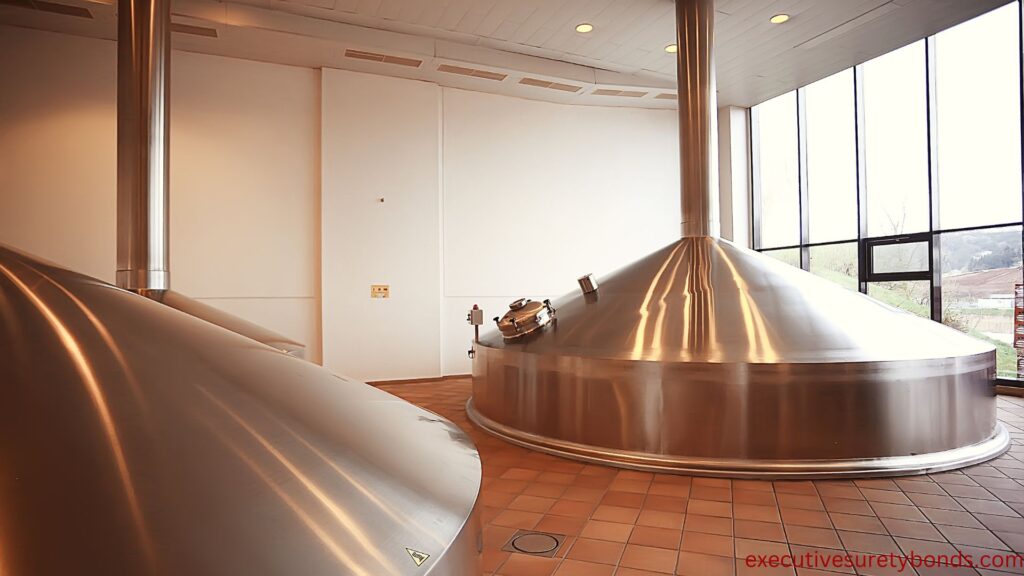Introduction
The state of Oregon boasts a thriving beverage industry, known for its craft beers, wines, and spirits. To ensure the responsible and lawful distribution of wholesale malt beverages and wines within the state, the Oregon Liquor Control Commission (OLCC) mandates that wholesalers obtain a Licensee Bond. Specifically tailored for wholesale malt beverage and wine distributors, this bond plays a pivotal role in maintaining the integrity of Oregon’s beverage industry. In this comprehensive article, we will explore the purpose and significance of the Oregon Liquor Control Commission Licensee Bond for wholesale malt beverage and wine distributors, the process of obtaining it, and how it contributes to a responsible and flourishing beverage market in the state.
The Oregon Liquor Control Commission Licensee Bond for Wholesale Malt Beverage and Wine: An Overview
The Oregon Liquor Control Commission Licensee Bond is a financial guarantee required by the OLCC for businesses engaged in the wholesale distribution of malt beverages and wines within the state. This bond exemplifies the state’s commitment to regulating the distribution of alcoholic beverages responsibly and in accordance with state laws and regulations.
Key Aspects of the Licensee Bond for Wholesale Malt Beverage and Wine:
- Bond Amount: The bond amount varies depending on the size and scope of the wholesale operation, typically ranging from several thousand dollars to a more significant sum. This amount serves as a financial safety net, ready to cover any financial losses incurred by the OLCC due to the distributor’s non-compliance with state laws.
- Regulatory Compliance: The primary purpose of the Licensee Bond is to ensure that wholesale malt beverage and wine distributors comply with all OLCC regulations and obligations. It acts as a form of insurance for the OLCC and consumers, guaranteeing that distributors will operate within the legal framework.
- Consumer Protection: The bond also serves as a measure of protection for consumers who purchase malt beverages and wines from licensed wholesale distributors. In case a distributor engages in fraudulent activities, misrepresentation, or fails to meet its obligations, consumers have the option to file a claim against the bond to seek compensation.
Obtaining the Oregon Liquor Control Commission Licensee Bond for Wholesale Malt Beverage and Wine
- Choose a Bond Provider: Wholesale distributors must select a licensed surety bond provider experienced in providing Licensee Bonds for the OLCC. A reputable provider will guide the distributor through the bonding process efficiently.
- Application and Underwriting: The distributor will need to complete an application form and undergo an underwriting process with the bond provider. The underwriting process evaluates the distributor’s financial stability and history to determine the bond’s premium cost.
- Pay the Premium: Following successful underwriting, the distributor will be required to pay a premium for the bond. The premium amount typically represents a small percentage of the bond amount and depends on the distributor’s financial credentials and other factors.
- Bond Issuance: Once the premium is paid, the bond provider will issue the Oregon Liquor Control Commission Licensee Bond in the name of the distributor. The distributor must then submit the bond to the OLCC as part of the regulatory compliance process.
Importance of Compliance and Responsible Distribution
Maintaining compliance with the Licensee Bond for Wholesale Malt Beverage and Wine is paramount for distributors. It ensures that the distribution of alcoholic beverages is conducted with integrity, adhering to strict OLCC regulations. Failure to comply with these standards can result in severe financial penalties, legal consequences, and harm to Oregon’s esteemed beverage industry’s reputation.
Conclusion
The Oregon Liquor Control Commission Licensee Bond, designed for wholesale malt beverage and wine distributors, stands as a testament to the state’s commitment to preserving the quality and reputation of its beverage industry. It acts as a critical tool in ensuring that distributors operate responsibly, in accordance with state regulations, and with a deep commitment to maintaining the integrity of Oregon’s beverage culture. By understanding the purpose and process of the Oregon Liquor Control Commission Licensee Bond, wholesale malt beverage and wine distributors can navigate the regulatory landscape effectively and contribute to a flourishing and responsible beverage industry that continues to thrive in the state.
Frequently Asked Questions
Can a wholesale malt beverage and wine distributor request a temporary reduction in the bond amount during periods of economic downturn or unexpected financial challenges?
In some cases, wholesale distributors facing financial hardships may inquire with the Oregon Liquor Control Commission (OLCC) about temporary reductions in their Licensee Bond amounts. These requests are typically considered on a case-by-case basis and may require the distributor to provide substantial evidence of their financial situation. The OLCC will assess the circumstances and determine whether a temporary adjustment is feasible while ensuring compliance with state regulations.
Are there any opportunities for wholesale malt beverage and wine distributors to participate in environmentally sustainable practices, and could such efforts lead to bond-related benefits or exemptions?
The OLCC is increasingly recognizing the importance of sustainability within the beverage industry. While sustainable practices may not directly affect bond requirements, distributors who actively engage in environmentally responsible practices may earn recognition from the OLCC and consumers. Additionally, there could be incentives or programs that offer benefits or exemptions to distributors who can demonstrate significant contributions to sustainability efforts, though these would likely be separate from bond requirements.
Can a wholesale malt beverage and wine distributor transfer their Licensee Bond to a different wholesale location within Oregon, or is the bond specific to the original licensed location?
Transferring the Oregon Liquor Control Commission Licensee Bond to a new location within Oregon can be a complex process. It typically requires approval from both the OLCC and the bond provider, along with meeting certain conditions. The new location’s suitability and adherence to regulatory requirements will be evaluated. Whether the transfer is possible and the specific requirements may vary, so distributors should consult with the OLCC and the bond provider to ensure a smooth transition and compliance with all necessary procedures and regulations.

